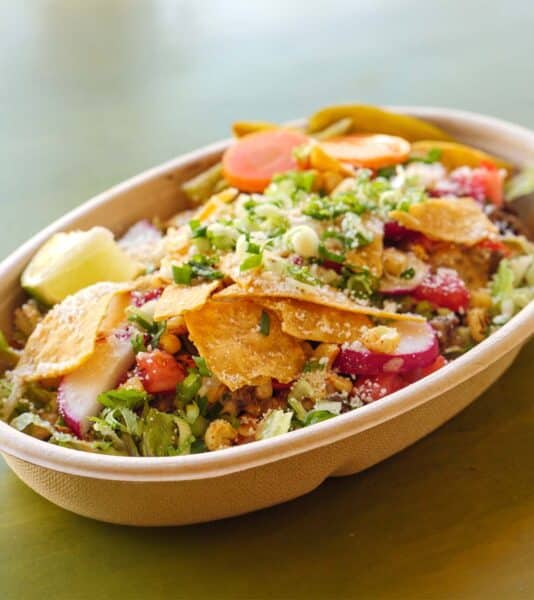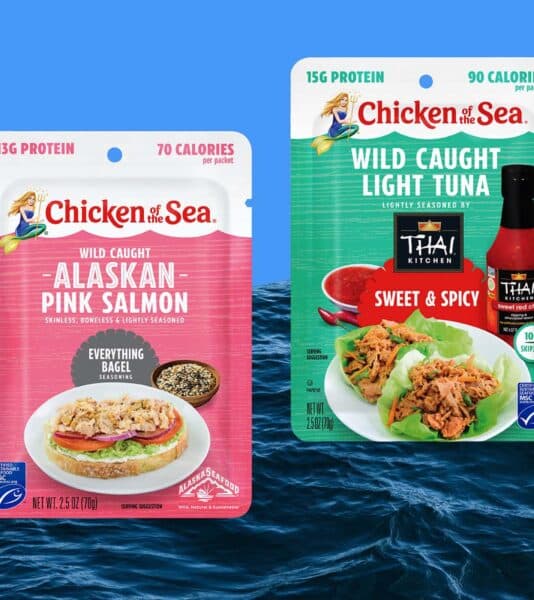School and campus foodservice customers are influenced by the cultural qualities of their generation. Understanding their values and preferences is key to successful school foodservice today.
Many members of Gen Z, the 25-and-under student population, pride themselves on being “foodies”. They love discovering new menu ideas and experimenting in the kitchen. A key inspiration is trending recipes on TikTok.
They value individuality. There’s more, though: “As their relationship with food is shifting, more Gen Zs are embracing a holistic attitude about food that transcends taste and calories and also factors in food morality, nutrition and its impact on mental health,” according to research released by Cassandra.
New eating habits
Quarantines in 2020 “disrupted young consumers’ eating habits, changing when and what they ate,” says IFT. With new routines, snacking took hold for people of many ages. “Eating regular meals” declined, and today, fewer than half of Gen Z members eat “three square meals a day,” reports IFT. Snacking activity is the norm, and it’s higher than it was before the pandemic.
Sustainable food choices
Three-quarters of Gen Z voices concern for the environmental impact of their food choices. “But while Gen Z is more likely to purchase foods and drinks with ‘small carbon footprint/carbon neutral’ and ‘plant-based’ labeling than their Boomer counterparts, they still weigh those product attributes against the price tag.” (2022 IFIC Food & Health Survey)
According to the Food & Health survey, young consumers respond well to terms like “all natural,” “organic,” and “eco-friendly.” However, being the digital native generation, members of Gen Z are vociferous online researchers. They’re more likely than older consumers to study the ingredient list of a food product and draw their own conclusions.
Health a driver for food choices
IFT notes that members of Gen Z have a keen interest physical and mental health. They prioritize “taste, nutrition, and overall improvement of mental health,” according to Cassandra.
At least 2 out of 5 students follow some type of dietary restriction. Common restrictions are: gluten-free, dairy free, carb-free, vegetarian, and pescatarian. In addition, some follow intermittent fasting trends.
IFIC observes that Gen-Zers are prioritizing functional benefits from foods and nutrients, seeking health benefits such as:
- Energy/less fatigue (38%)
- Improved sleep (35%)
- Emotional/mental health (33%)
- Digestive/gut health (29%).
Plant-based eating
Almost 1 in 5 Gen Z is vegetarian or vegan, and 64% are interested in or regularly eating/drinking plant-based products, according to IFT. “A big part of the appeal of plant-based meat is that it could help with climate change issues, which these generations are incredibly anxious about. In fact, 23% say that they have changed their diet because of climate change,” IFT reports.
Your school foodservice menu
How can you apply these insights to your school foodservice menu? Be open. Be creative. And invite your students to tell you about their priorities when it comes to choosing foods. You can also choose and promote sustainability practices, such as traceable seafood sustainability and eco-friendly packaging. Understand that your students care deeply about what’s in their food, and provide full transparency into ingredients. You can label and promote healthy menu items, gluten-free options, and more. Visit the recipe center for healthy foodservice recipe ideas, and learn more about satisfying your customers in K12 foodservice and C&U foodservice.








